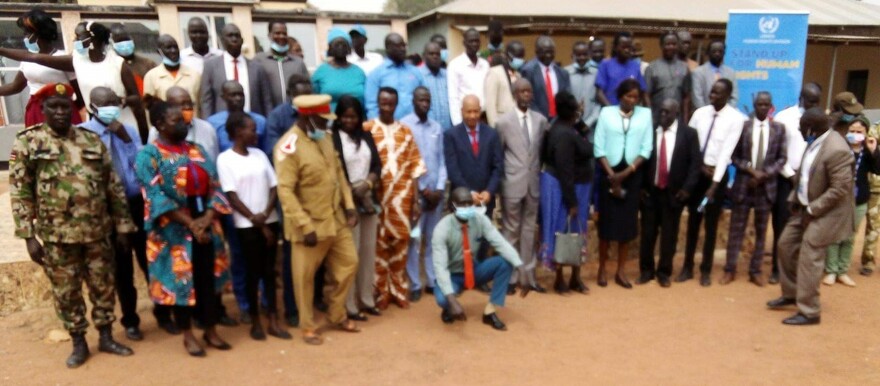The United Nations Mission in South Sudan (UNMISS) Human Rights Division on Tuesday commenced a three-day workshop in Aweil, Northern Bahr el Ghazal, to disseminate the 2018 peace deal with a focus on chapter five.
Over 50 representatives from the community, government, and civil society are attending the empowerment engagement which began at Grand Hotel.
The peace agreement’s chapter five talks about transitional justice, hybrid court, and formation of a commission of reconciliation and healing.
UNMISS team leader in Aweil, Alfred Zulu, told Radio Tamazuj Wednesday that it is a right for the people of Northern Bahr el Ghazal to know and understand the peace agreement.
“The objective of this workshop is to sensitize the population of Northern Bahr el Ghazal and the stakeholders on the importance of the article five of the revitalized peace agreement so that they (stakeholders), the actors, the policymakers, the legislative assembly members, and government officials are aware of the obligation that has been entrusted upon them by the provisions of the revitalized peace agreement,” Zulu said.
He added, “There is a requirement for transitional justice, including things such as a hybrid court, the formation of commission on reconciliation and healing. As we head towards the end of the transitional period which is now only remaining with ten months, the citizens of Northern Bahr el Ghazal must be fully educated on the importance of the requirements in article five.”
Some of the participants said they share the message with grassroots communities.
“After this workshop, we will spread the message of transitional justice and we hope there will be a commission so that those who lost their property should be compensated,” Abraham Aluk, one of the participants said.
Another attendee, Makauei Geng, said he hopes to acquire knowledge about transitional justice and other human rights principles.
“Our expectation is to learn and acquire the knowledge on transitional justice,’’ Geng said. “We also expect to learn more about human rights principles.”




